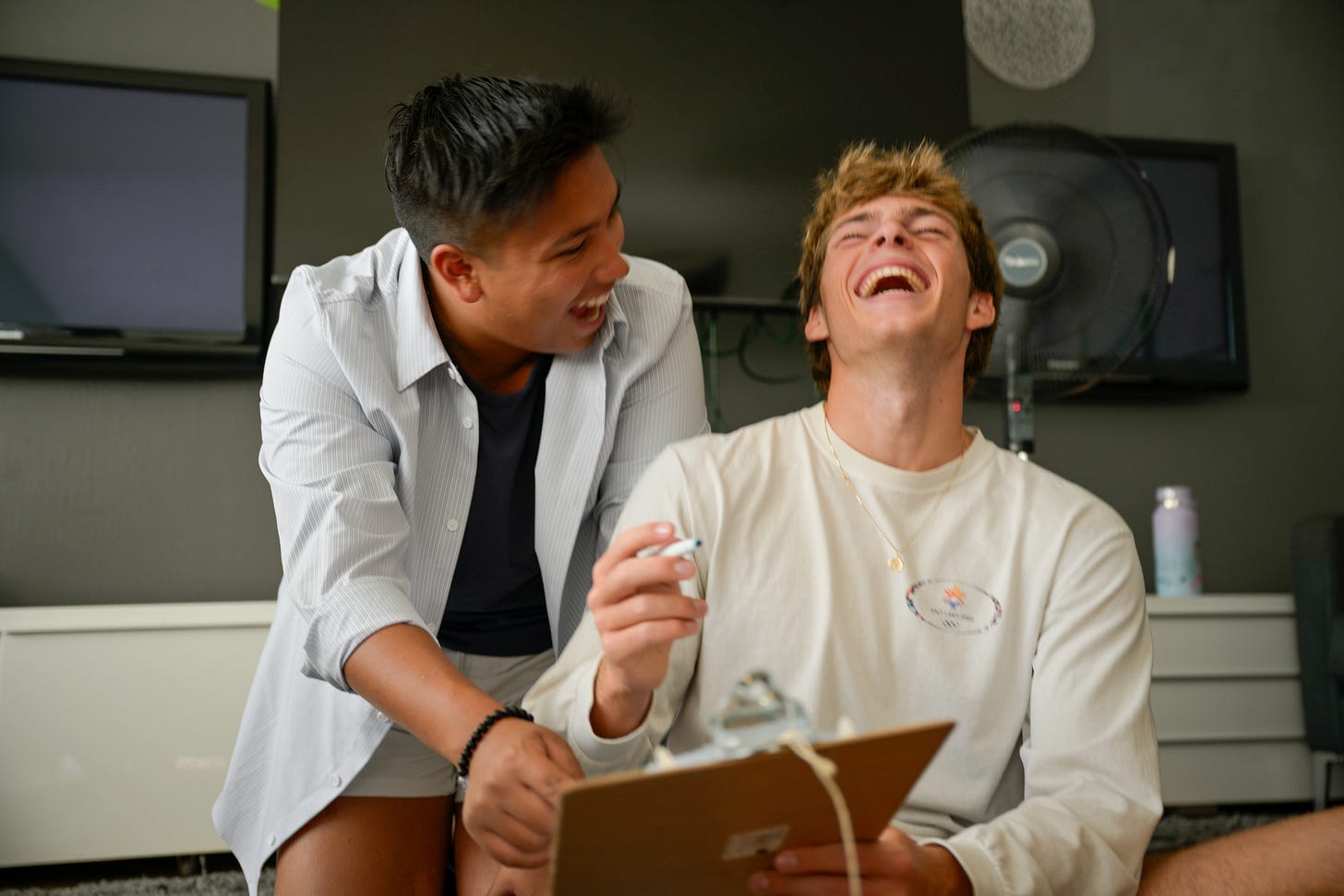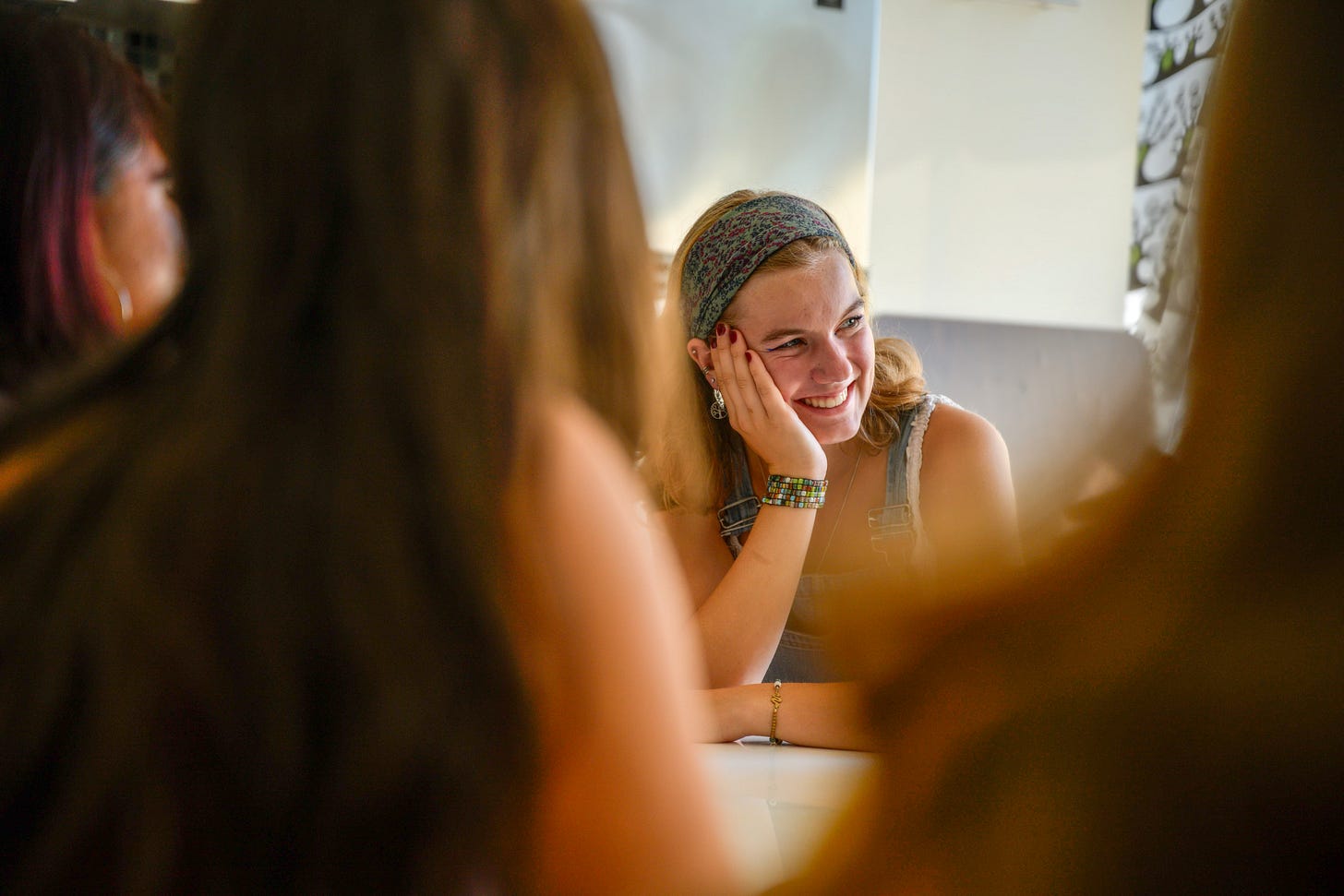NAPA VALLEY, Calif. — My 9-year-old does not yet have a smartphone, but he’s already planning what he’ll do with it once he’s finally old enough to get one. He’s not interested in Facebook, he says, but he’s definitely going to get TikTok and Instagram. And no promises, he tells me, about YouTube.
He says it like this because he knows I worry. Vivek Murthy, the U.S. surgeon general, has issued an advisory about youth and social media, and I’m anxious about its impact on my kids’ mental health. But I also know that social media is a fact of life these days. I recently sat down with Maya Frazier, a therapist at Mentis, to better understand the influence of social media on our well-being.
The bottom line, Frazier said, is that social media is a tool. And like any tool, what you get from it depends entirely on how you choose to use it. Social media can actually be a wonderful resource for self-care and wellness. Mental-health experts post helpful advice on all kinds of platforms, and there is lots of other positive content to be found, too – inspirational quotes, motivational messages and uplifting stories about people helping one another. And with the way social media algorithms work, the more positive content you follow, the more each platform will offer you.
Social media can also be a great tool for self-expression. It’s a way to share creative projects or parts of your personal journey and to connect with other like-minded people. It’s a way to stay in touch with loved ones who don’t live close by.
But social media can also have harmful consequences for a person’s mental health. Frazier explained that algorithms reward those who post, like and comment consistently – and the pressure to stay relevant online can cause stress and anxiety. Social media can also harm self-confidence and lead to “FOMO” – a fear of missing out – or even feelings of failure when we scroll past seemingly perfect images of people doing all the things we think we should be doing. Even if we know, in theory, that those images don’t tell the full story, it can be hard to resist comparing ourselves.
Social media platforms can also be outright dangerous places. Again, social media is a tool – and some accounts use that tool to do harm. They might post violent or otherwise inappropriate content. The harm might also be more directed and intentional: Cyber-bullying is common at both middle and high schools.
Social media can disturb our sleep. Many of us, teens included, check social media right before bed and again first thing in the morning. We might reach for our phones when we wake up in the night. But all that stimulation prevents our brain from shutting down and getting the rest it needs. And that, in turn, can have negative consequences for our mental health.
That being said, what can we do to minimize social media’s harmful impact and maximize the good? Frazier has lots of great suggestions. First, make the algorithm work for you by curating your feed: Follow positive accounts that add value to your life and unfollow those that cause you stress, unnecessary comparison or other negative feelings. Turning off social media notifications on your phone can help you be more intentional in the way you engage with these platforms and reduce the time you spend scrolling through your feed. Limit the number of platforms you participate in to lessen the time you invest in keeping up with posting, liking and commenting.
If you’re a parent, support your children in engaging in real-life activities that encourage them to put their phones down and help them build a social life that isn’t entirely online. Frazier also encourages parents to educate their kids on the consequences of posting online and the way a digital footprint can have a long-term impact on their reputation and relationships. She advises making sure your kids understand that they cannot control how other people use the content they post online. And build trust with your children by having open and honest conversations about social media and its risks. You may not be able to protect your kids from having a negative experience online, but you can make sure they feel safe coming to you if that happens so that you can help them navigate it.
And finally, Frazier said, kids watch what the adults around them do. Set an example of healthy social media use by using Frazier’s tips and tricks to make sure it’s a positive tool in your own life.
If you or someone you love is experiencing a mental health crisis, call or text the 988 Suicide and Crisis Lifeline.
If you or someone you love needs mental health or wellness support, please visit our Mentis Community and Youth Resource Database. Mentis, one of Napa’s oldest nonprofits, provides affordable bilingual mental health services to people of every age and income level.
Charlotte Hajer is Mentis’ development director. She holds a Ph.D. in cross-cultural mental health and loves to write about the way individuals experience and navigate the social and cultural world around them.
Maya Frazier, MSW, is a trained therapist at Mentis, where she works with teens and young adults. She has worked with high school students as part of Mentis’ school-based programs, and she is excited to start working with college students this fall as part of the Mentis team at Napa Valley College.
If today’s story captured your interest, explore these related articles:
Sunday E-dition: Napa Teens Champion Mental Health With SHINEcast
Supporting Youth Mental Health: How It Started, How It’s Going
Weekender Encore: ‘The Real Housewives of Napa Valley’ Revealed
Supporting Youth Mental Health: Making Authentic Connections
Navigating Seasonal Changes: A Guide to Self-care and Mental Wellness









Actually “other” because I use all of the above.
excellent article about a VERY important issue -- many thanks